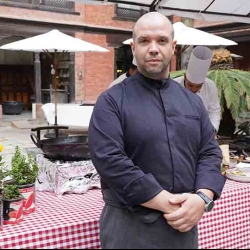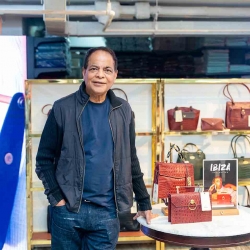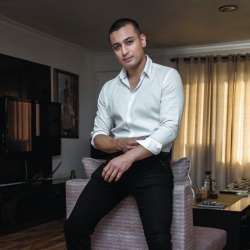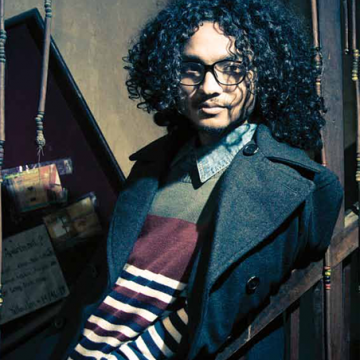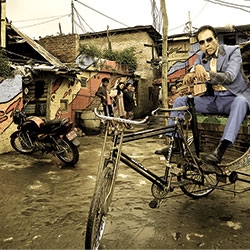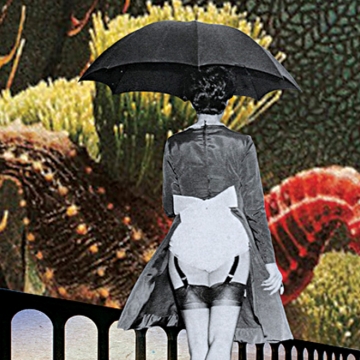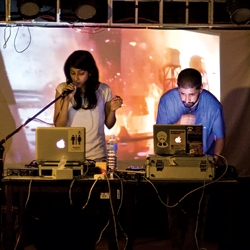Heirs of Hospitality
With the world gripped in the COVID-19 crisis and its severe impact on hospitality, amongst other industries, it's important to keep looking ahead on how the industry will bounce back. The hospitality industry is highly competitive, and businesses need to keep up with the latest hospitality trends to avoid being left behind. Additionally, keeping pace with the industry as a whole is a great way to ensure your business delivers the kind of customer experience people want and expect. The travel landscape is almost unrecognizable from that of previous years and it's time to see what the new generations bring to the table.
Here's what a few scions of the hospitality industry have to say about the innovative approaches they are bringing in order to recalibrate the hospitality domain.
Words : Esparsh Sarawagi
Mikhail Lari
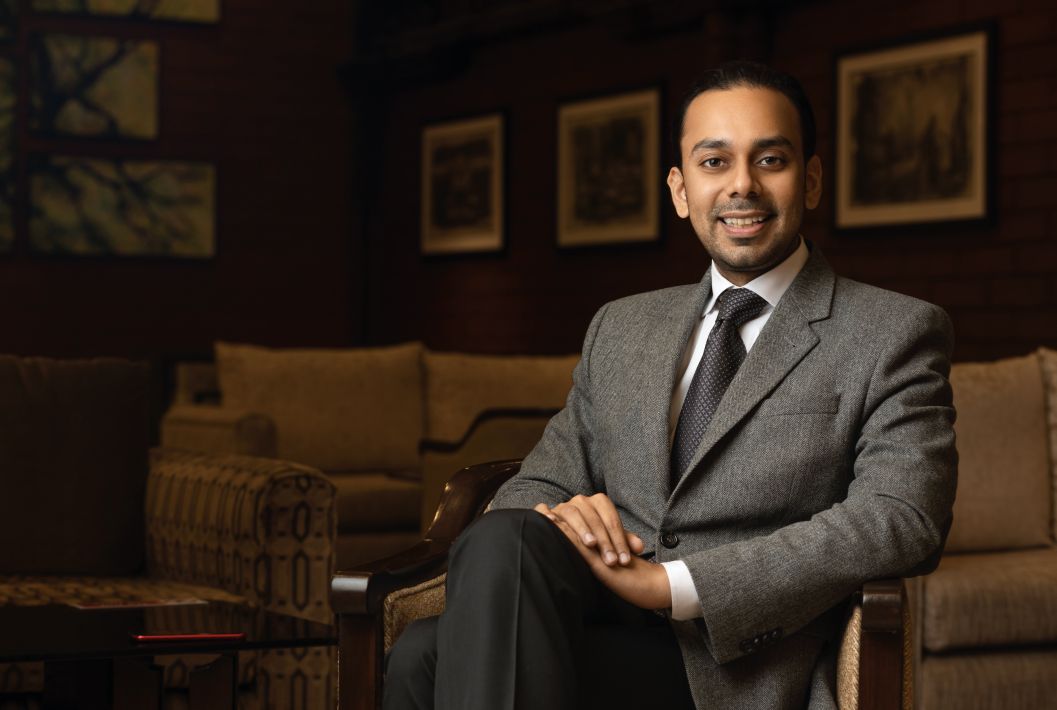
Looking to make an impact and creating a benchmark in the hospitality industry, Mikhail Lari, the Executive Director of the Everest Hotel, Kathmandu has been proving his mettle since he immersed himself in the business back in 2009. An epitome of hard work, resilience, and fearlessness who ventured out of his comfort zone to achieve the impossible, Mikhail sits well poised at the top with his skills. He lives each day to conquer unknown territories through his entrepreneurial abilities taking each day as a learning experience.
How has Everest Hotel evolved with time?
The hotel was built and started by my father in 1981 as The Everest Sheraton Hotel, part of the American brand Sheraton. The first 10 years were operated under Sheraton’s management. Since 1991, we’ve been operating as The Everest Hotel, our own independent brand, with a professional team managing day to day operations. The internal systems and standards that we have in place today are the same standards that were established by the Sheraton management. With the core of Sheraton, we constantly evolve with time and putting it firmly on a trajectory of sound growth. We update and implement new policies, practices, standards with reference to the current global standard of an upscale hotel.
You are an alumnus of EHL-Ecole hôtelière de Lausanne which has been consistently regarded as the No.1 hospitality school in the world. How was your experience there and how do you think EHL is contributing to your role at Everest Hotel?
After completing my undergrad from Boston University with a degree in Bachelor of Science in Business Administration (BSBA), I came back to Nepal in 2009 and started getting involved with the decision making at Everest Hotel. After working here for about seven years, in 2016, I decided to apply at EHII, in Switzerland where I did my Executive MBA in Hospitality Administration. It was the best experience of my life. Studying in EHL added tremendous value to my work and life. Firstly, it reinforced what I already knew from my past work experience. Sometimes, you already know something but until y you get new professional and educational exposure, you don’t realize if what you are doing is correct. I also updated my knowledge as I learnt of new practices in the current hospitality industry and the business world; I gained practical hands-on experience, learnt about new trends and where the hospitality industry is headed. I got total access to top hospitality leaders and insiders. For instance, my Capstone project was mentored by Bernhard Bohnenberger who is the President of the Six Senses Hotels Resorts Spas and he himself is also an alumnus of EHL.
It gave me time to reflect on what Nepal is as a tourism destination and sector, and what it will become and make for the hospitality industry.
What are some of the shortcomings that you see in the hospitality industry in the days to come?
Keeping aside the case of COVID-19, we need to understand how the market has evolved in terms of tourism and we need to act accordingly. With Nepal, infrastructure is the biggest challenge (especially the air transport related infrastructure). In the short-term, the government could enhance air transport infrastructure by optimizing operations at Tribhuwan Internationl airport (TIA) and enhance capacity by operating TIA for 24 hours daily. And, in the long-term by bring into operation more international airports in Nepal.
Another challenge is the lack of quality employees working in the hospitality sector compared to other countries in South Asia. Based on my experience, I’ve realized that many qualified, talented, and passionate people working in the hospitality sector leave Nepal and go to other countries to work in the hospitality sector. The government needs to come up with plans and incentives to retain and attract quality manpower to work in the tourism sector.
What do you consider is the USP of the Everest Hotel with many international chains coming up lately?
Being independent and having our own identity as The Everest Hotel is an USP in itself. Our location is something that sets us apart from other competing hotels in town. We are in the middle of three cities of Kathmandu Valley.
What are your interests apart from work?
Learning is my top interest. If someone had asked me ten years ago about my interest, I would have sold traveling and playing golf .But today, it is all about learning. Learning by reading, learning by taking course, and most importantly learning by doing.
What is the best advice you’ve received?
A common advice that I’ve received from many people is to be humble. It might seem very plain and simple. As I mentioned earlier, learning is my interest, and I try to be humbler each day.
What advice would you give the youths who are planning to get into the hospitality sector?
Do it only if you are passionate about it. No matter whatever level of job it is within the sector, unless you are genuinely passionate about the hospitality sector don't get into it. There are many other sectors that one can pick from. The same goes for hotel owners; this is industry that is both capital and labor intensive. Secondly what makes it unique from almost all other industries is that it is homogenous where you produce and sell at the same time and place.
René Vijay Shrestha Einhaus
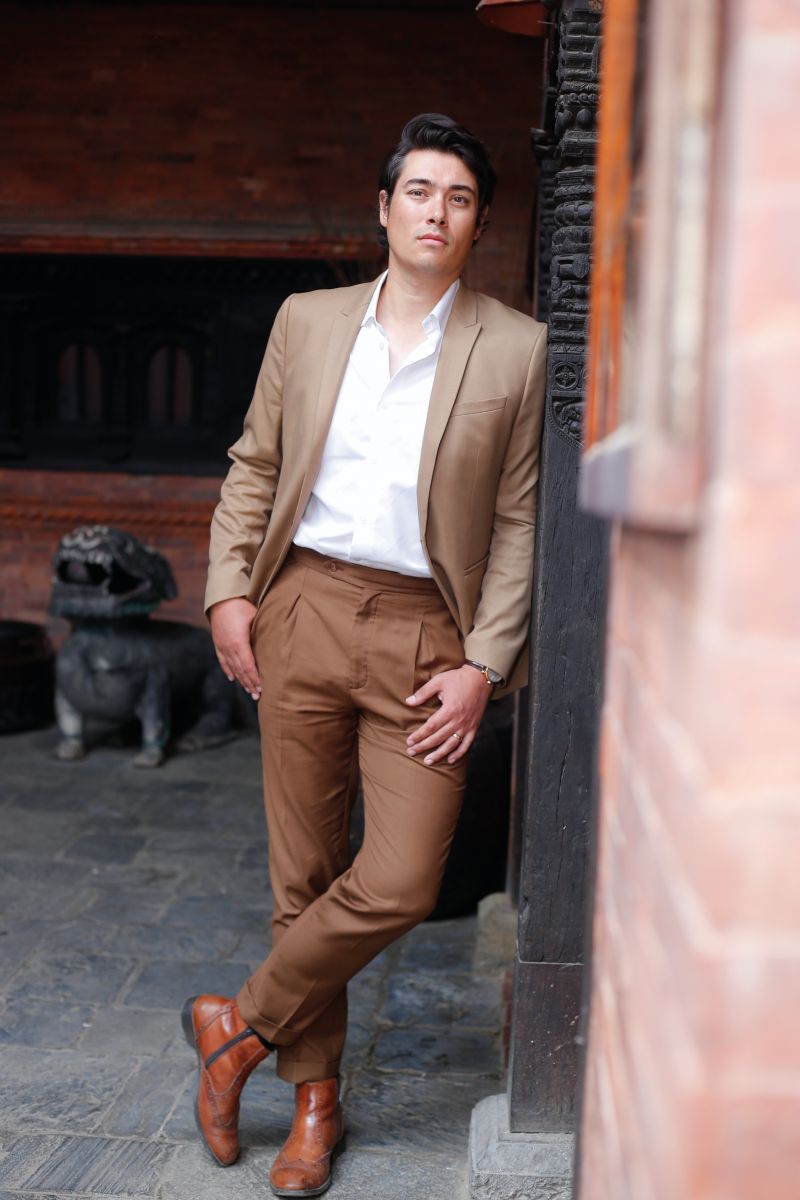
René Vijay Shrestha Einhaus, the Owner and Executive Director of Dwarika’s Group of Hotels and Resorts, is the third- generation managing the family business to create a Nepali luxury Hospitality brand That makes its mark Internationally and Adds value to the tourism sector and for Nepal. After Spending most of his time in Germany, Shrestha-Einhaus returned to Nepal and has been a part of Dwarika’s Group of Hotels and Resorts for almost 11 years now. An enviable legacy, strengthened by early days of working in Germany and his educational background of holding an MBA combined with global exposure, Vijay is taking forward the family’s mission of architectural and heritage conservation and creating truly Nepali hospitality products.
How have you seen the company transform and update with time?
Our company is in a constant process of transformation and up gradation. I believe it is an essential process for the long-term success, But our transformation is always based on and staying true to the Dwarika’s identity, principles, values and mission that were set by our family.
We have transformed from a5-room guest house to being considered one of the top hotels in south-east Asia. And now, we are aiming to transform from a “stand- alone hotel” to a Nepali hospitality brand. We are constantly working on refining and upgrading the experiences we offer to our guest. Our internal structures, procedures and processes are adapted so we are able to tackle today’s challenges. New business channels how to communicate with and reach your clients are constantly explored and updated
How challenging was transitioning into the family business and how did you bridge the generation gap?
When you join a company, people believe that you got the job because of your credentials and your work experience, but when you join the family business as the son of the owner, people believe that the position came for granted.
When I joined Dwarika’s people had this mindset that I got the position only because I’m the heir of the family. I had to prove my worth. I had to earn the respect and the trust from our people. And this could only be done through hard work and showing results.
Secondly, I think the generational gap can also be taken as an added advantage. If there are controversial opinions but there are grounds for fruitful discussions leading to a joint decision, this generational gap is definitely an advantage. I mean you can look at it from this. Angle: Experience is combined with innovation. But nonetheless, you still have to continue developing our own leadership style which is authentic and true to oneself. You have to communicate your ideas and vision for the company clearly because only if you make people believe and trust in what you believe in, will the people follow you.
What is that major responsibility that comes with being associated to The Dwarika’s Group?
As I said before, the major responsibility is to stay true to what the Dwarika’s stands for our identity and our values- but at the same time transform refine and upgrade the experience we offer our guests. The vision and mission of the Dwarika’s will always remain unchanged but certain parts of the experiences will change over time.
How has the pandemic scene affected the Operations?
I think that the tourism industry worldwide was one of the most impacted industries by the pandemic. Till date times are still challenging. Talking about Tourism in Nepal and how it affected us, tourism had basically broken down from End of March 2020 after worldwide lockdowns and travel bans were implemented. And we as a business were hit hard. Our Hotel in Kathmandu and our Resort in Dhulikhel remained closed for the most of 2020. Also, as the second wave hit in April this year, we closed operation for some months keeping our staff’s and guests’ safety as the highest priority.
As of today, we don’t know how the new variant Omicron will affect international travel. It looked like 2022 would be a year when tourism starts to recover. But due to the new developments, we already received cancelations for the first quarter of 2022. However, we are still hopeful that the travel sector will start recovering slowly with more and more people being vaccinated worldwide. But we also learnt during the last two years that we never know what will happen next. So, we will stay alert and try to stay as flexible as possible in order to be able to respond and adapt to any situation that may arise in the future.
What is your take on the international hotel chains that are coming up in town lately?
I believe, in general this is a good thing for Nepal and Nepali tourism. New jobs are created, investments in the tourism industry are made, there is more competition which leads to an up gradation of the services and products, and most importantly these international hotel chains are going to market the destination Nepal. Nepal in general will receive more awareness which is vital for the development of tourism. I strongly believe that before we sell our hotel products and services, it is important that the clients are sold on the destination Nepal Only once they are sold on the destination, we can sell our rooms and service to the clients For us at Dwarika’s, I am confident that we are able to stand in this competitive environment. I believe that we have created a unique experience that is 100% Nepali and that is second to none.
How do you manage to bring balance in your personal and professional life?
As we live in the hotel itself, T don’t have any commute time to work, which saves me a lot of time considering Kathmandu’s traffic which I can spend with my family (smiles).
Honestly, I enjoy what I am doing. But lately, I am taking a little more free time to spend with my family and especially with my seven-month-old son. Seeing how he grows and being a part of his development is wonderful. Otherwise, I am an avid golfer and enthusiastic footballer. I find sports and exercise to be stress busting and it clears your mind.
Who have been your mentors in the tourism industry?
I was inspired by my grandparents. I am in or of my grandfather’s vision and farsightedness. He established the foundations of what we ate today and he gave us our identity and our values to write the Dwarika’s story. My mentor is my mother. She was role model, she taught me, she Shaped the into what I am today. I admire what she developed out of my grandfather’s vision. She was and is the driving force behind the success of the Dwarika’s
What advice would you like to give the youths who are planning to get into the hospitality sector?
Have a passion for what you do, invest yourself in what you do, make a difference for your work place, make an Impact. In our industry every position you may hold in the company is of utmost importance. Only if all links in the chain work perfectly together our guests will have a memorable experience.
And if you are in the service part of our business, do it from your heart. It makes all the different.
Bidhata Shrestha
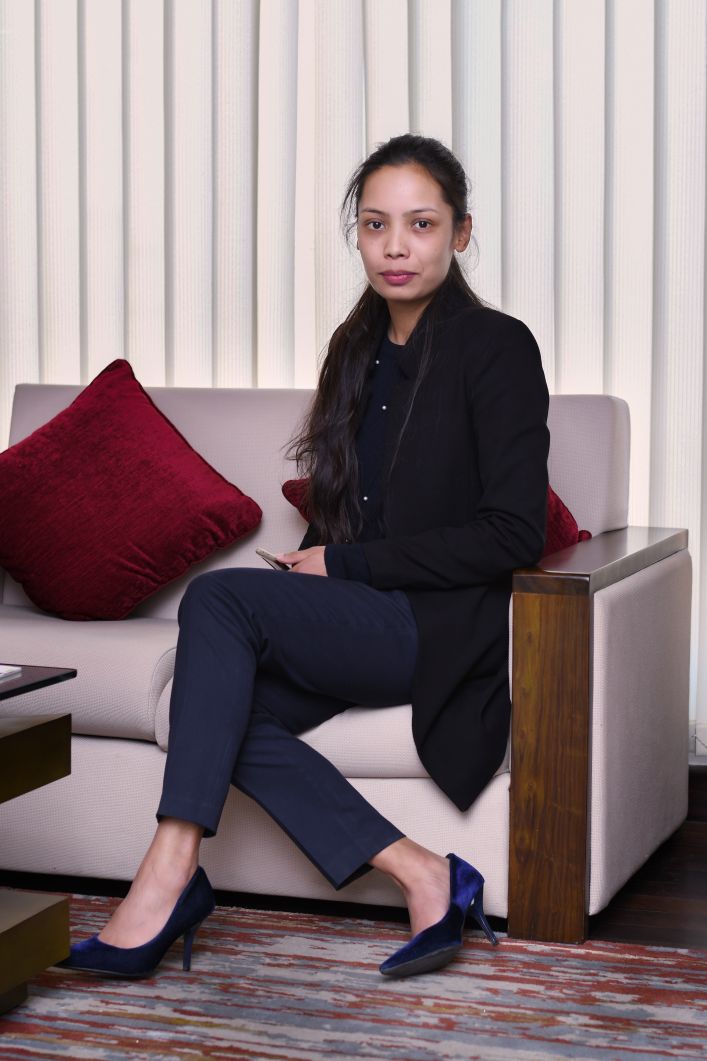
After finishing her post-grad in Advance Business Management from UK, Bidhata Shrestha has been serving as the Joint Managing Director at Radisson Hotel Kathmandu for more than five years now and with Radisson completing its 25 years of successful operation next year, Bidhata is bedecked with enthusiasm with the maverick streak and eye for trailblazing. Not one to rest on her family’s laurels, Bidhata shows sheer passion when it comes to success and is here to change the hospitality domain.
Did you always plan to get into hospitality?
I had never thought that I would get into the hotel industry. Initially, I joined Radisson only to do an internship and learn more about how the business works. I wanted to help my dad temporarily and also figure out my interests at the same time. I've seen my dad dealing with the ups and downs of the hotel and it was a different experience getting to know the hospitality industry from inside.
How challenging was transitioning into the family business and how did you bridge the generation gap?
When you study abroad, you have a different perspective on how things go around in terms of operations, managing and dealing with people. You are taught with a viewpoint that works best with their companies and policies. But when you come to Nepal, it's a completely different ball game. First year was actually quite challenging for me. Here, things take time to be implemented. You have to push people and be behind their back to get even the smallest of tasks to be completed. The government rules here are such that although you are not satisfied with it, you have to come to terms and deal with them in a different way. For instance, I recall doing one of the case studies in my university, where we were asked about how would we deal with any kind employee and the simple answer was to fire them. But that doesn't apply here in Nepal. You cannot fire people. At one point, I was not sure if I should continue further. I was learning and taking things forward slowly, in a way, it didn't hamper any institutional operation. I just got the hang of it after sometime.
What did you initially start with and how was the response?
First six months, I was just observing things and being a part of the meetings conducted by my father and seeing how things go. Things changed a lot during the insurgency period. There was a lot to deal with back then. I was basically putting in place all the backlogs that happened back then and trying to set a system for everything. Slowly, I started taking charge of the operations and giving in my inputs. I worked with my HODS and gave in my suggestions based on what I'd learned and how things should be changed for betterment, and I'll say, the entire team took it very positively because of the support of my father and uncle.
What are some of the changes that you personally incorporated after you took charge?
There should be a system regarding who should be liable for doing things. Before I took charge, it was all a blame game inside in the departments. I initiated a change where I set up a system and got it managed digitally in a way every department got connected to each other. That way, we started getting updates of what's lagging behind. I also brought some new ideas in the F & B department.
How has your experience been working at Radisson till date?
Most of my time I've been here, along with my team, have overcome major challenges; be it the earthquake or the blockade and now the pandemic. Even during the earthquake, safety was my utmost priority. We had a designated area for the guests and we were in constant touch with the embassies till the time our guests reached their destinations safely. We were completely closed down in the first lockdown. In the second one, we ensured every possible measure to make sure everything is handled with utmost care. Also, ours being an international chain, we got many guidelines from them on how to deal with most situations.
What do you consider is the USP of Radisson with many international chains coming up lately?
Radisson Hotel Kathmandu is a franchise property. We are not managed. With many international hotel chains coming up lately, we see that they are mostly managed and controlled by their international rules and
regulations. But with ours, we can take our own decisions. There are guidelines that are provided to us, but it's mostly under our jurisdiction. Our motto is 'Yes I Can' and there's always been this zeal to do the best.
What is the best advice you've received and from whom?
My father always advised me to be patient. He always told me that things take time here and I cannot lose my patience easily. Also, he always motivated me to be social and respect every invitation. He used to tell us to at least go and show our face even if we don't want to go to a particular event because it's an appreciation to them.
What advice would you like to give the youths who are planning to get into the hospitality sector?
I feel it's very important to travel and be out there. Meet people, learn about different cultures, and introduce your country outside. This really broadens one's mind and gives one a wider perspective of how trade is happening in between countries. In the hospitality industry, you have to be committed. Don't limit yourself with the hospitality opportunities present only in Kathmandu. Explore the country and refrain from centering yourself only to the capital.
Amy Sakya
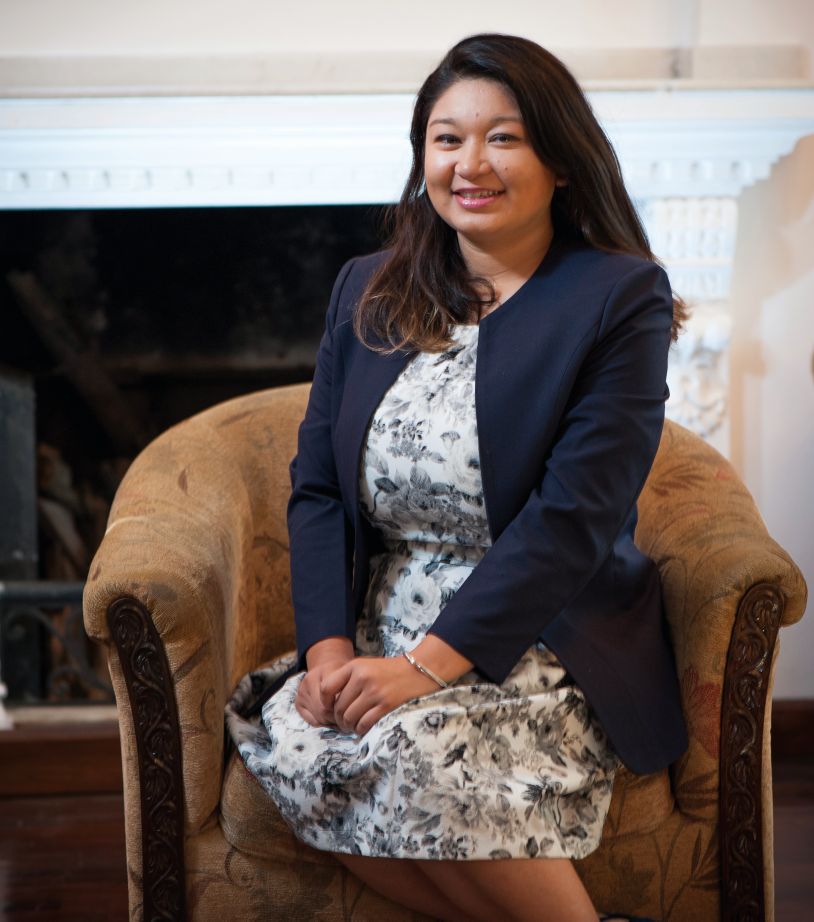
Amy Sakya, Executive Director of KGH Group, came back to Nepal in 2014 and is currently the operational in-charge of two properties under the KGH franchise which is Park Village and the Buddha Maya Gardens Hotel in Lumbini and also oversees the marketing and branding of the entire KGH group. Coming from a family where hospitality runs in the blood, Amy is shaking things up with her innovative approach to things.
Did you always plan to get into hospitality?
Coming from a family that has established its name in the hospitality industry, I always sort of knew that I would get in the same sector. I have also always been passionate about travel and tourism and meeting and interacting with new people. Also, I've always lived in hotels all my life. I feel it's in my roots and I definitely didn't want to miss this experience. We believe we are not the owners of the property but the custodians of it. So, when we get it, we build it better for the next generation.
How fruitful do you consider was your education in hospitality?
After studying a few years in Rato Bangala, I did most of my schooling in India. Later on, I went to Les Roches International School of Hotel Management in Switzerland to study hospitality and spent four years there and they are known for their hospitality in general. As per the curriculum, six months we studied in Switzerland itself and the next half, we were sent to do internships. For my practical experience, I went to Paris and Bombay. In Paris, luckily, I had a very friendly working experience. In Bombay, I worked in a boutique art hotel called Le Sutra where I was handling guest relations. They have this adjoining restaurant in Bandra 'Out of the Blue' just next to the restaurant called 'Olive Bar & Kitchen, a must-visit place if you want to spot Bollywood biggies. I realized that major learning happens on the job and not in school when you are in hospitality because it's a people-to- people business and an actual work environment is where to deal with all the actual communication.
I worked in the F&B department during my internship in Paris. We used to polish the cutleries and were given tasks to serve the kids. Being a Disneyland land, kids usually get excited with the huge banquet buffet set up and they ended up overeating. I've had kids puke on me and I can never forget that (laughs). It was however a very fruitful experience as I
got insights into how the back office of the industry works.
What is the challenge of the generation gap when you get into the family business?
Our group of hotels was pretty much very family oriented. When I came in with my Swiss background back then, I wanted to be more on the corporate side of it, get more systems in place, and get better manpower as it was more like everyone just waiting for instructions from the family. If the family was not there, nothing would have been in place. We are still stuck with a few old practices but we have actually come a long way.
The generation above you is skeptical when it comes to giving you the authority to make your own decisions. Initially, most of my decisions were undercut and a lot of communication errors happened. There are instances where I wanted to bring in better management who are paid higher but as we were not used to paying that much, adding on the employees was kind of difficult for me. Our older generation believes that if we can do it, why get other people to do it. I think with the newer generation, it’s like you shouldn’t be the smartest Person in the room, and try to bring in people who can do better in their respective fields. I believe if the product is enhanced and you get better quality out of it, paying a higher amount should not be an issue
How has the experience been so far and what changes have you personally introduced?
The experience has been ever- Learning and always growing. I have been working in Nepal since 2014 and we’ve had so many issues: the Earthquake, blockade and then the Pandemic. Working here teaches you how to manage risks when things are uncertain. I don’t think any of my friends who are in the hospitality Business have had as much experience as I’ve had. After I came in the picture, I’ve Got SOPs which clearly shows what to do in a certain situation. So, for Instance, if an earthquake happens In the future, we know what we need to do. Also, I’ve worked on Bringing better human resources and Manpower to enhance the property. When I came, social media was certainly becoming important. I brought that transition online and sort Of gave a push on the importance of Digital marketing.
How did you deal with the pandemic?
There are both positives and negatives with the pandemic. Park Village did suffer but not as much as the other six Hotels inside the KGH group because our main clientele is domestic. Also, because it’s a spread-out area with a lot of outer space, we got to utilize it. During these pandemic properties like ours which have a lot of greenery was preferred by people. We got a lot of walk-ins which is rare as people Perceive our hotel as a very far-off Destination but during the pandemic, they didn’t mind coming all the way. Park Village is a MICE (Meetings, Incentives, conferences & exhibitions) Hotel and conferences were our major Source. However, that was impacted by the pandemic. With the Lumbini Property, we struggled a lot as we were mostly dependent on international Clients, predominantly Indians.
What is your take on the International chains that are coming up in the market?
These hotel chains have got a Marketing strength that’s huge. Promoting Nepal as a destination is boosted by this. They are also going to raise our standards operationally. However, these chains are still Undercutting on their rates which Becomes very difficult for us when it comes to uplifting the standards.
What do you think is the USP that KGH holds as a Group?
Every KGH property that you go to, you’ll experience that Environmental aspect. Even if we don’t have huge space, we do our best with the little we have with gardens, trees and the environment as a whole is something that is always highlighted. And yes, obviously, we are a very Nepali oriented hospitality group.
What advice would you give youths who are planning to get into hospitality?
Making a name for yourself has become easier lately because of the presence of social media. Be who you are, be unique and put yourself out there and don’t be afraid to take that first step.
Ayesha Malla & Anoushka Malla
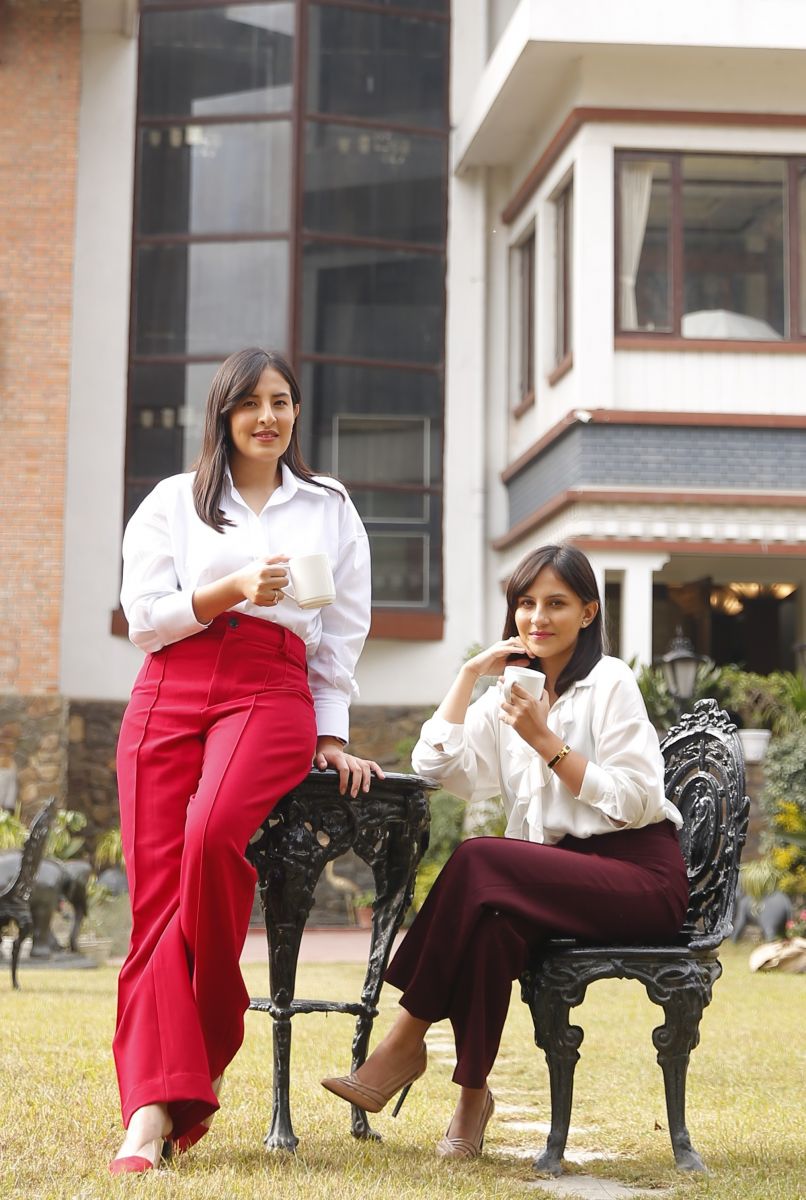
Ayesha Malla, Associate Director for Product Development at The Malla Hotel and Anoushka Malla, Associate Director for Business Development have been involved with the hotel's operations for around three years now and these heiresses of Malla Hospitality are in no mood to settle for average results. Both of them did their high school from Mayo College Girls' School in India and then moved to Les Roches International School of Hotel Management where Ayesha specialized in Marketing and Product Development while Anoushka specialized in entrepreneurship. Busy with the face-lifting of the entire property, they are here to prove that age is just a number and when it comes to making a mark, it's your idea that makes
the mark.
Did you always plan to get into the hospitality industry or did someone influence you to get into this?
Ayesha: Ever since we were very young, both of us always wanted be a part of the hotel industry. It wasn't just because we have a hotel but being in the hotel, what was happening around the hotel always caught our interest. That's the reason we studied hospitality and did our internships and education abroad in order to experience how things work there, to understand their work culture and get insights from other hotels. Of course, the work environment is different in Nepal, so eventually we knew we wanted to come back, materialize our experiences into the hotel with whatever contribution we can make. We started working in all the departments to understand and know the hotel from the inside and get our base strong, and eventually discover our niche about what we are interested in and that's how I started product development and Anoushka started overseeing the digital front of the hotel.
What challenges does the generation gap bring when getting into the family business?
Anoushka: Every generation has a different approach to taking things. The way my grandparents think is different from my parents' generation and the same goes for us. Each generation adds and brings a different perspective and value to the hotel. My dad also recently came into Malla as he was previously looking after Malla Travels. I feel that the industry is in a constant cycle of change and we as hoteliers need to step on that pedestal and keep up with the changes around us.
Ayesha: I don't think it's a challenge; rather a bonus as every generation adds a wide spectrum of ideas and values to the company's growth. We have always been recognized as the children of the family, so getting into the business and taking on a major role could not just come so easily. Therefore, we made the decision to start by understanding and working in each department of the hotel, understanding the intricacies of the business, and getting to know the employees. Operating in a hotel means developing a professional understanding with the people working there. That being said, we had to show everyone in the hotel that we were eligible for this role and are not just here by right. Every generation brings a fresh aspect of change so for that reason I think it was welcoming change for everyone.
What was the biggest eye-opener for you after you joined the operations?
Anoushka: We rely so much on foreign tourism, we never realized that local tourism itself, be it through banquets, food service or catering, those things can also create so much of electricity and can actually bring major cash to the hotel. We are now planning promotions, wellness packages, staycations and even focusing on conferences.
What is the USP that Malla Hotel holds?
Anoushka: It's definitely our garden, because of the open space. Amongst the hustle and bustle of the city, you need an open ground and I know that events always prefer open spaces.
Right after you started in Malla, the country went into lockdown. How did you handle that?
Ayesha: When the pandemic hit everything was just dropped. However, I'll say that became a bigger learning experience for us. This span of time, we utilized to learn through upgrading and getting more into the digitalization aspect of the hotel. With our whole construction going on, we are learning so much because now we're learning about what the hotel needs both externally and internally. All those upgrades, which could have taken us time to learn, all of that is happening in one go. Right now, we are focusing on more OTAs and listing our property on more travel sites, improving our rankings, enrolling in meta search engines and social media marketing as well. We also worked on our seasonal strategies during this time and surveyed everything, coming up with plans for the low season. The biggest hurdle during this time is to survive, which we are doing successfully and so the next target will be to thrive.
What will be your major focus after you open up?
Ayesha: We don't want Malla to just be a place where tourists come to spend the night and spend the entire day exploring the city. We want to be with them on that journey right from the time they get out of the airport to when they check out. When they go back, they should proudly feel that they have experienced the hotel as well. Our goal is to not just to be part of their experience but rather be "THE experience" We will also revive the Garden Party ritual that used to be a calendar event back in the day.
What is the best advice that you've received and from whom?
Ayesha & Anoushka : We both think our biggest motivator has always been our grandmother. There's this thing, she always said, "Mind over matter". What you set your mind to do, you can achieve it. She has always advised us to have ambitions and to always have the courage to materialize our dreams into reality.
What are some of the major renovations that Malla underwent during this time?
Ayesha: We have revamped and refurbished all 103 rooms; we have renovated our coffee shop and swimming pool, added a new bar which is called the AVIARY, we are building a new outdoor banquet, underground parking and also including a new commercial complex. The hotel is scheduled to open early next year and that is when the banquet, the coffee shop, the rooms will be completed. The whole hotel along with the complex and the underground parking facility is scheduled to open around the autumn season of next year.
What advice would you give youths who are planning to get into hospitality?
Ayesha: Be open to experiencing everything around you. Mold that experience to form a concept and then implement it into your own hotel. Anoushka: Add a personalized touch because that's what makes a huge difference. One should always be adaptable and flexible to changes and challenges.




